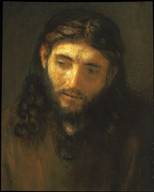 At the weekend we were in Shropshire where, on Saturday, we took part in a 'Come and Sing' performance of Messiah conducted by my father-in-law, who has just turned 90. However many times I have performed the work - I've sung it, played the organ for it, and conducted it myself - it never fails to stir me as it reaches its grand climax: "Worthy is the Lamb that was slain...Blessing and honour, glory and power...Amen." Musically it can be explained by the succession of choruses building towards the magnificent final fugue, and, with orchestral accompaniment, the trumpets bringing the crowning splendour at the end. But, uniquely for a musical work, the work has great theological power as it tells the salvation story of Christ's birth, death, resurrection and ascension. First performed in 1742 the work seems to have universal appeal for people of faith or no faith. Maybe it is because although the text is selected entirely from the bible, the name of Jesus is hardly mentioned. For Christians the work obviously portrays the great hope of resurrection 'through our Lord Jesus Christ', but for those who are not Christians the music still evokes tremendously inspiring feelings of 'something better'. If salvation could come through music, I'm sure this is where it would be found.
At the weekend we were in Shropshire where, on Saturday, we took part in a 'Come and Sing' performance of Messiah conducted by my father-in-law, who has just turned 90. However many times I have performed the work - I've sung it, played the organ for it, and conducted it myself - it never fails to stir me as it reaches its grand climax: "Worthy is the Lamb that was slain...Blessing and honour, glory and power...Amen." Musically it can be explained by the succession of choruses building towards the magnificent final fugue, and, with orchestral accompaniment, the trumpets bringing the crowning splendour at the end. But, uniquely for a musical work, the work has great theological power as it tells the salvation story of Christ's birth, death, resurrection and ascension. First performed in 1742 the work seems to have universal appeal for people of faith or no faith. Maybe it is because although the text is selected entirely from the bible, the name of Jesus is hardly mentioned. For Christians the work obviously portrays the great hope of resurrection 'through our Lord Jesus Christ', but for those who are not Christians the music still evokes tremendously inspiring feelings of 'something better'. If salvation could come through music, I'm sure this is where it would be found. As we were driving back through the increasingly heavy traffic of the M40 and M25 we listened on Radio 3 (always my station of choice in the car) to my favourite Beethoven symphony, No. 3 'Eroica'. The performance was preceded by a fascinating talk in which the speaker drew out the themes of death and resurrection - this time the death of the archetypal hero. When Beethoven started writing the symphony he was inspired by the heroic liberating acts of Napoleon Bonaparte, and dedicated the symphony to the great leader. Famously, though, when Napoleon declared himself Emperor, Beethoven scratched out the dedication as he felt the revolutionary hero had turned tyrant. The symphony can be interpreted as 1) the portrayal of the hero (Napoleon), 2) a funeral march: the death of the hero, or the heroic ideal, 3) a new birth - the music of the scherzo brings life and joy, and finally 4) the hero remade in which reason and enlightenment triumph over tyranny. This is shown through the use of fugal writing - so often used by composers from Haydn onwards to bring reason and order to the climax of great symphonic works. I found it a compelling interpretation, but of course the very nature of music means that the story it tells can be interpreted in many different ways.
As we were driving back through the increasingly heavy traffic of the M40 and M25 we listened on Radio 3 (always my station of choice in the car) to my favourite Beethoven symphony, No. 3 'Eroica'. The performance was preceded by a fascinating talk in which the speaker drew out the themes of death and resurrection - this time the death of the archetypal hero. When Beethoven started writing the symphony he was inspired by the heroic liberating acts of Napoleon Bonaparte, and dedicated the symphony to the great leader. Famously, though, when Napoleon declared himself Emperor, Beethoven scratched out the dedication as he felt the revolutionary hero had turned tyrant. The symphony can be interpreted as 1) the portrayal of the hero (Napoleon), 2) a funeral march: the death of the hero, or the heroic ideal, 3) a new birth - the music of the scherzo brings life and joy, and finally 4) the hero remade in which reason and enlightenment triumph over tyranny. This is shown through the use of fugal writing - so often used by composers from Haydn onwards to bring reason and order to the climax of great symphonic works. I found it a compelling interpretation, but of course the very nature of music means that the story it tells can be interpreted in many different ways.

No comments:
Post a Comment